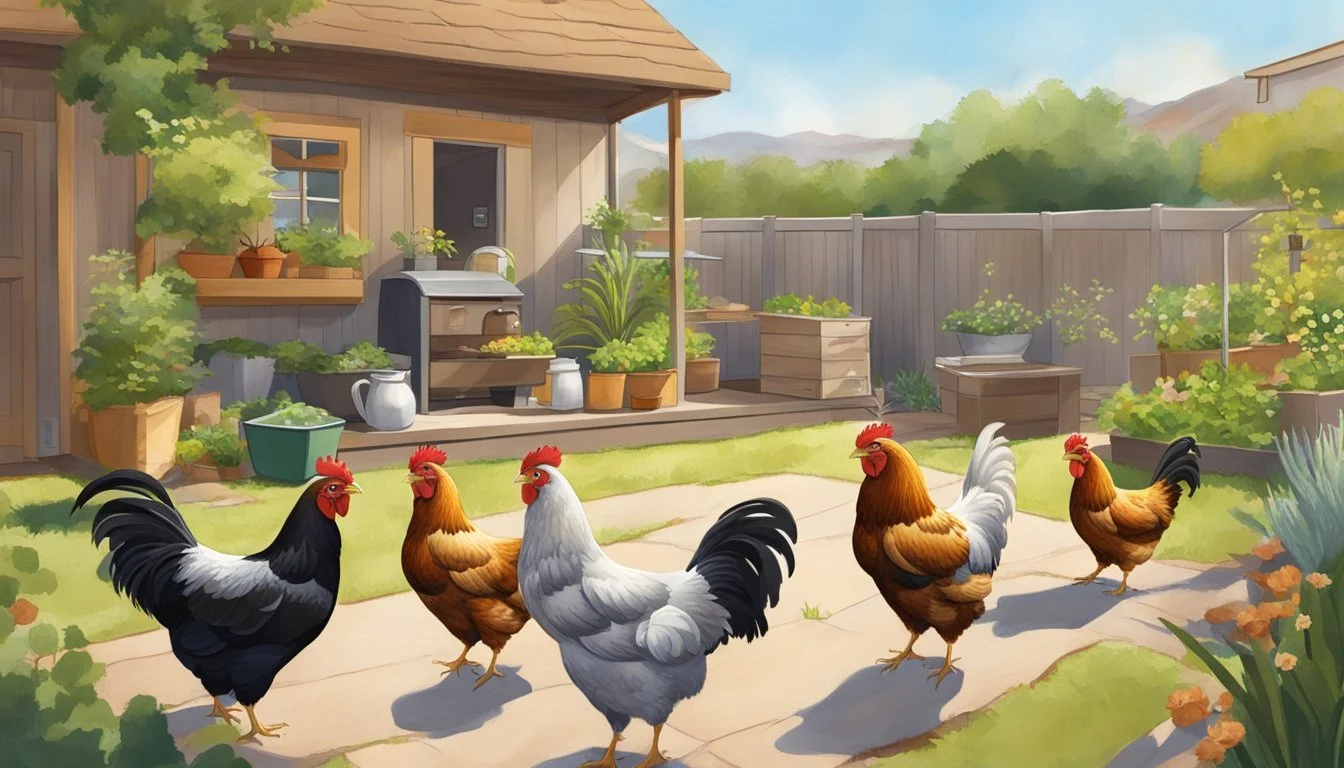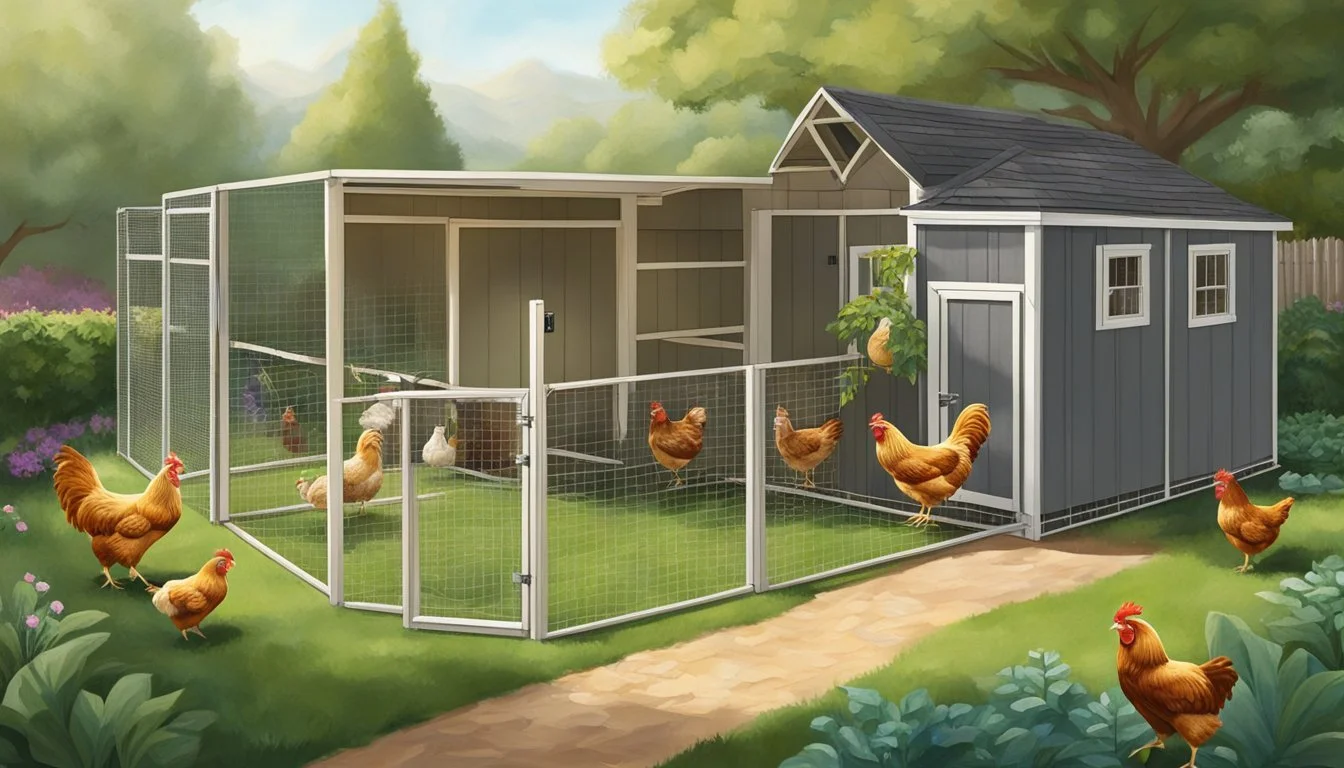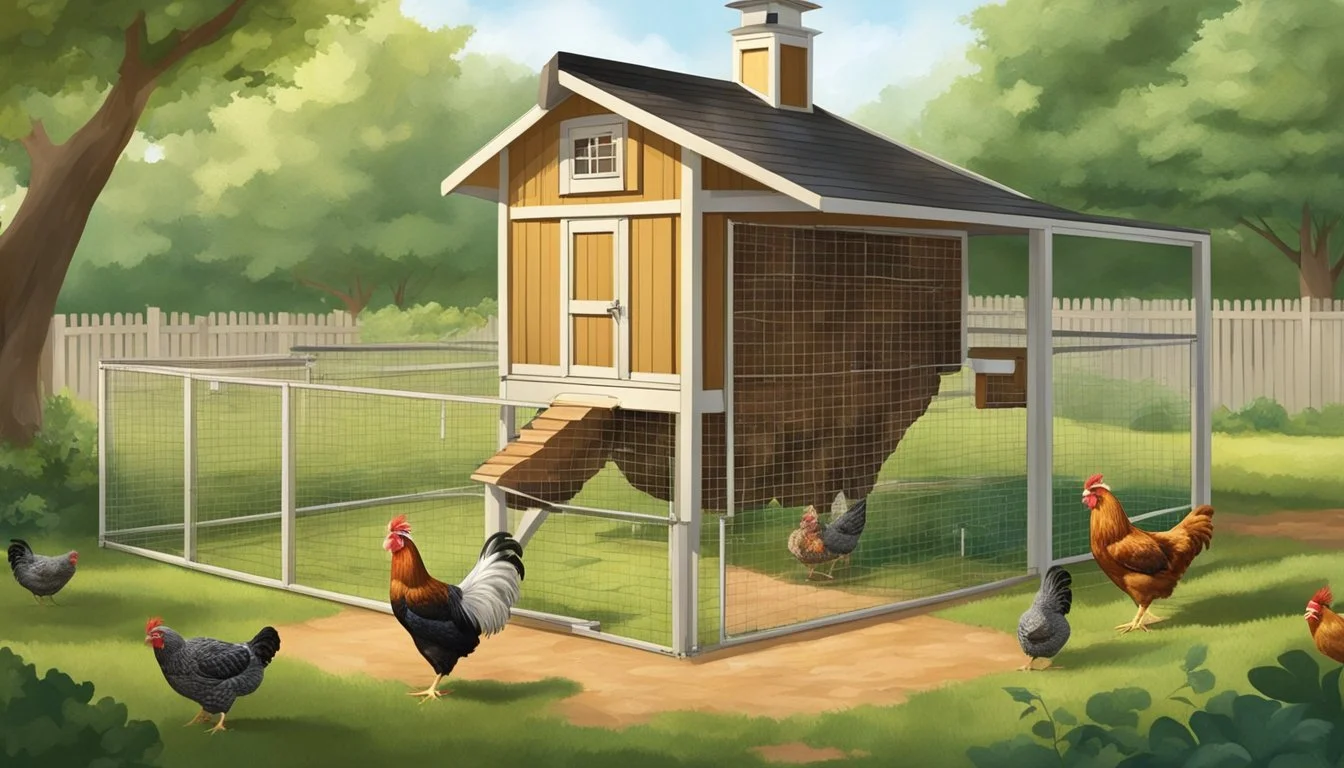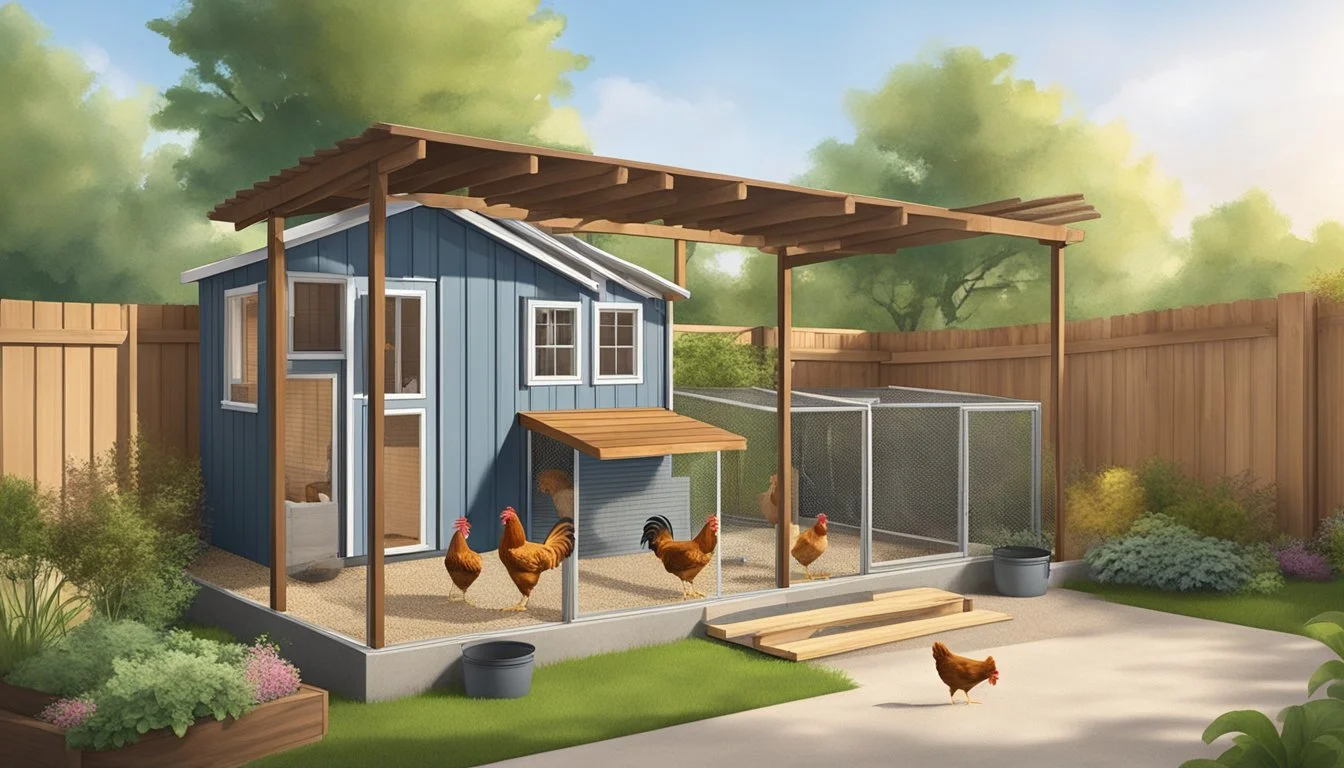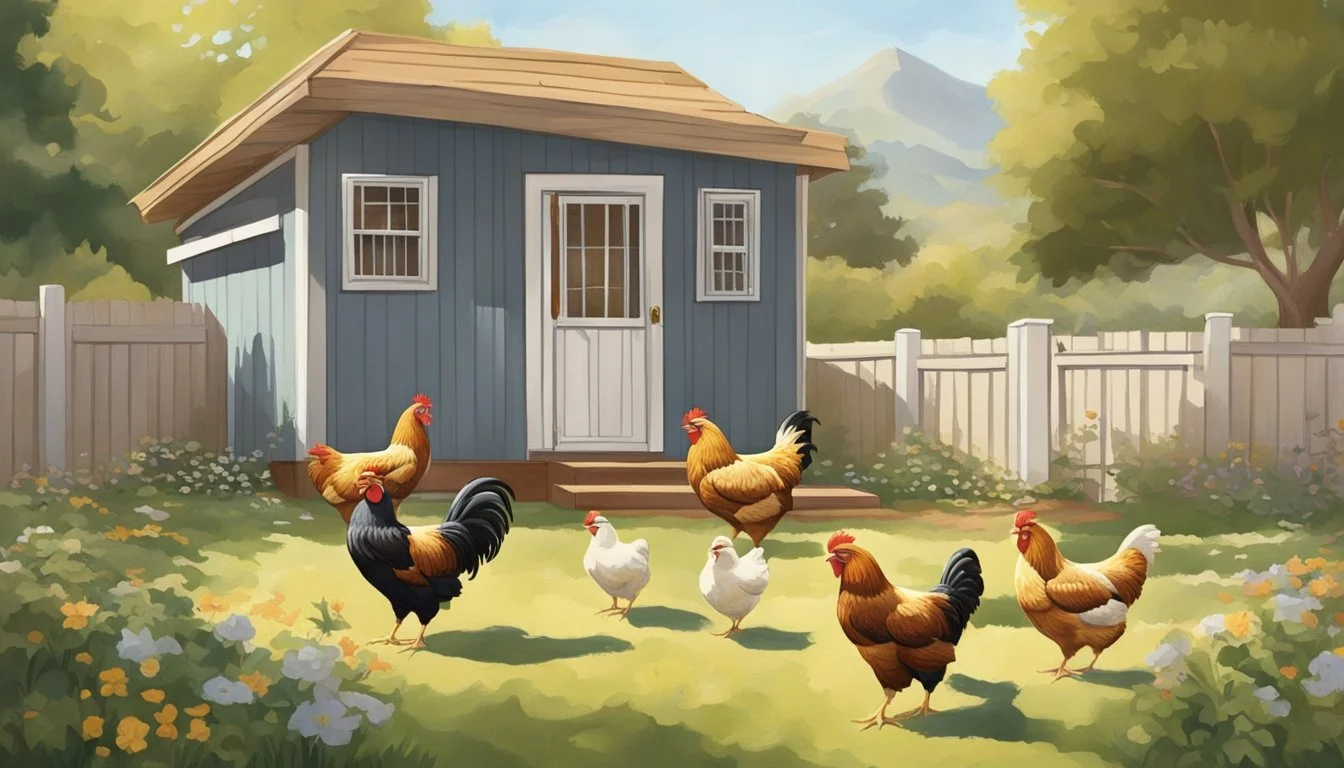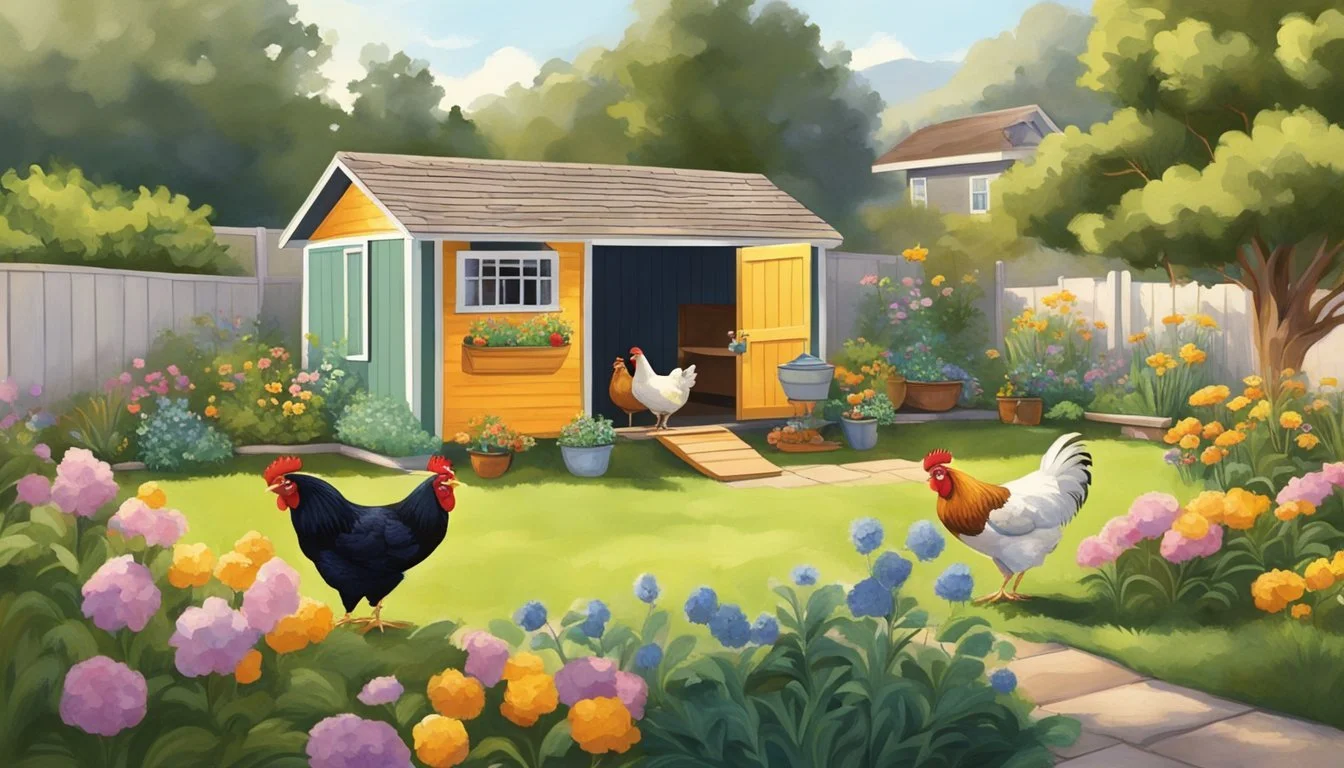Keeping Backyard Chickens in Ventura, CA
Essential Guidelines for Novice Poultry Keepers
Keeping backyard chickens has become a popular pursuit in urban areas, and Ventura County, California, is no exception. Residents of Ventura have embraced the idea of raising chickens at home for various reasons, including the desire for fresh eggs, natural garden fertilization, and pest control. Beyond these practical benefits, chickens can serve as friendly pets, educating both children and adults about sustainable living and where our food comes from.
The practice of keeping backyard chickens requires an understanding of both state and local regulations to ensure that it aligns with the law and community standards. In California, regulations may vary significantly from one municipality to another, highlighting the importance of familiarizing oneself with the specific rules that apply to Ventura County. It is also essential for prospective chicken owners to consider their neighbors and the dynamics of urban living when entering this rewarding venture.
Understanding Local Regulations
When keeping backyard chickens in Ventura, CA, it is crucial to understand and comply with local zoning and permitting laws, the specific number of chickens allowed, and setback requirements from property lines.
Zoning and Permitting
In Ventura County, zoning is a primary determinant of whether residents can keep chickens. Zoning regulations typically specify which residential areas are eligible for backyard chicken keeping. For instance, R1 zoned areas permit chicken keeping without lot size restrictions, but they are subject to other local regulations. However, chickens are outright banned in R2 zoned areas. Before acquiring chickens, one should confirm with the local planning department about the zoning and any necessary permits that may be required within the city limits.
Number of Chickens Allowed
Regulations may also dictate the number of chickens a resident is allowed to keep. Although specific numbers can vary within different zones of Ventura County, as a general rule, the number allowed often relates to the size of the lot. For example, animal husbandry, which includes the keeping of chickens, requires a minimum lot size of 10,000 square feet in certain areas. Larger lot sizes are often permitted more chickens. Residents should verify the exact number with the Ventura County regulations that apply to their particular lot.
Setback Requirements
Setback requirements are regulations that mandate a specific distance that chicken coops and runs must be maintained from adjacent properties or dwellings to prevent nuisance and maintain health standards. These restrictions can vary but generally ensure that coops are located away from neighboring houses. In Ventura County, the local rules could specify several feet of setback from property lines for any chicken enclosures within residential areas. Compliance with these setback requirements is essential for legal chicken keeping and maintaining good relationships with neighbors.
Setting Up Your Coop
When setting up a chicken coop in Ventura, CA, one must consider location, design for health and safety, and defense against predators to ensure a secure and healthy environment for the chickens.
Choosing the Right Location
One should select a site for the chicken coop that provides adequate space for the birds to roam and is well-drained to prevent standing water. Avoid placing the coop near wild bird populations to reduce the risk of disease transmission.
Space Requirements: At least 2-3 square feet per chicken inside the coop, and 8-10 square feet per chicken in an outside run.
Drainage: The site should be on elevated ground to minimize water accumulation.
Designing Your Coop for Health and Safety
The coop's design should prioritize keeping the chickens clean and free from diseases. Ample ventilation is vital while guarding against drafts. The interior should be easy to clean, with surfaces that do not harbor pathogens.
Ventilation: Adequate airflow with adjustable vents or windows.
Cleaning: Non-porous surfaces for easy disinfection and removable dropping trays.
Protecting Against Predators
Securing the coop against predators is imperative. Dogs, cats, and wild critters can pose significant risks. One should reinforce the coop with sturdy materials and ensure all openings are covered with predator-proof mesh.
Materials: Use hardware cloth instead of chicken wire for added security.
Locks: Install locks on doors and nesting boxes to deter intelligent predators.
Daily Care and Management
Proper daily care and management are crucial for healthy backyard chickens. A focus on feeding, cleanliness, and health practices ensures the well-being of the flock.
Feeding and Nutrition
Chickens require a balanced diet to remain healthy and productive. They should have constant access to poultry feed, which typically consists of grains, protein, minerals, and vitamins. Layer pellets are suitable for egg-laying hens. Food scraps can supplement their diet, but one should avoid giving salty, spicy, or spoiled foods. Fresh water should be available at all times.
Maintaining Cleanliness
Keeping the coop clean is vital to prevent the spread of diseases and parasites like mites and lice. Regularly remove waste and replace bedding to maintain a dry and clean environment. Coop surfaces should be disinfected periodically, and food and water containers must be cleaned daily to prevent mold and contamination.
Health Monitoring and Disease Prevention
Observing chickens daily is key to early detection of health issues or changes in behavior. Preventative measures include vaccinations and treatments for parasites, such as mites and lice. Waste management is important; chickens' droppings should be removed from the coop and properly disposed of or composted. Avoid contact with wild birds to prevent disease transmission.
Legal and Neighborly Etiquette
Keeping backyard chickens in Ventura, CA, requires adhering to legal statutes and maintaining good relations with neighbors. It's crucial to navigate noise and odor concerns, as well as proactively address any neighborly issues that may arise.
Handling Noise and Odor Issues
When keeping chickens, one must consider restrictions on noise levels and odor management. Ventura County's regulations permit residents to keep up to four roosters on a parcel, primarily to curb noise issues. Noise from roosters can be a significant concern for neighbors, particularly in the early morning. To mitigate noise, one can:
Insulate chicken coops to dampen sound.
Establish rooster-free zones if necessary.
Odor can become a problem if not managed properly. Chicken coops and manure can create smells that are unpleasant to neighbors. To handle odor and associated issues:
Clean coops regularly to prevent breeding flies.
Compost chicken manure appropriately.
Ensure there is adequate ventilation in chicken areas.
Addressing Neighbor Concerns
Neighbors may have concerns that extend beyond noise and odor. One of the problems that can arise is the potential for chickens to attract predators like coyotes. Here's how one can address and mitigate neighbor concerns:
Engage in open dialogue with neighbors to understand their concerns.
Erect secure fencing to deter coyotes.
Share benefits, such as eggs or garden fertilizer, to create a positive association with chicken keeping.
By adhering to local restrictions and being considerate of neighbor experiences, keeping chickens can be a rewarding and community-friendly endeavor.
Raising Chickens Responsibly
Raising chickens in Ventura, CA, extends beyond providing shelter and food for the birds. Chicken owners should employ sustainable practices and engage with the local community to ensure their poultry-keeping habits contribute positively to their surroundings and foster learning opportunities.
Sustainable Practices
Sustainable practices in poultry keeping start with taking full advantage of the natural benefits chickens offer. Chickens can be a part of a closed-loop system, which includes composting their waste to fertilize gardens. This not only reduces organic waste but also enhances soil quality. Here’s a concise guide to ensuring sustainability:
Composting: Transform chicken waste into nutrient-rich compost for vegetable gardens.
Pest Control: Utilize chickens' natural behavior to control insects and weeds without harmful chemicals.
Egg Production: Collect and utilize eggs from chickens; consider sharing or selling surplus to locals.
Moreover, chickens themselves can be a source of education, especially for children, who learn about sustainable living and where food comes from through hands-on experience with the animals.
Engaging with the Community
Building a community around backyard chicken keeping can have myriad benefits. An active Facebook page such as Chicken Owners of the Central Coast allows owners to share tips, seek advice, and offer or request services related to chicken care. To be of service to the wider community, individuals can:
Share excess eggs with neighbors or local food banks.
Host informational workshops or participate in school projects related to chicken care.
Provide an email newsletter with updates on their flock or advice for prospective chicken owners.
Engagement with the community not only fosters better relationships but also helps spread responsible poultry-keeping practices throughout Ventura.
Eggs and Beyond
When residents of Ventura, CA raise backyard chickens, they often focus on the benefits of a fresh egg supply. But there's more to it, including proper handling of eggs and the consideration of flock expansion through breeding.
Egg Collection and Storage
Venture residents find that hens typically lay eggs once a day, with peak production occurring in the morning hours. Egg collection should be a daily routine to ensure freshness and prevent attracting breeding flies and other pests. Once collected, eggs need to be stored properly to maintain their quality. Here are the fundamental steps for egg storage:
Collect eggs daily to ensure freshness.
Clean any dirt off the eggs with fine sandpaper, a brush, or a cloth.
Store eggs in a cool, dry place or refrigerate to prolong shelf life.
Eggs can be kept at room temperature for several weeks, but refrigeration extends their usability and is recommended.
Breeding and Expanding Your Flock
For those interested in expanding their backyard flocks, understanding the role of roosters is crucial. One rooster can effectively service anywhere from 10 to 15 hens. Successful breeding requires careful planning and consideration of genetics to ensure healthy offspring. Here are a few pointers for Ventura residents who are considering breeding chickens:
Maintain a clean and spacious coop to prevent disease and encourage healthy breeding.
Monitor your flock regularly for any signs of ill health or distress.
Consider the temperament of the rooster; a calm rooster can reduce stress within the flock.
Breeding can inadvertently lead to issues such as increased smells and flies in the coop. To minimize such problems, regular coop maintenance is essential, including proper waste management to deter flies.
Local Resources and Support
In Ventura County, residents interested in backyard chicken keeping can find a wealth of community resources and educational opportunities. These allow aspiring and current chicken owners to connect, learn, and share valuable insights about raising poultry in an urban setting.
Community Groups and Online Forums
For local support, residents can join community groups and online forums. The Ventura County Chicken Enthusiasts Facebook Page serves as a popular meeting spot where members exchange tips, offer advice, and post about chickens. Camarillo, Moorpark, Thousand Oaks, and Santa Paula have active community members often willing to help newcomers integrate into the backyard chicken scene. These platforms enable users to stay informed about local regulations, share experiences, and find nearby chicken-related events.
Educational Workshops and Classes
As for education, Ventura County is home to several opportunities for learning. The Citizens Environmental Academy in Ventura offers workshops where chicken keepers can gain hands-on experience and knowledge about sustainable living practices including poultry care. Additionally, organizations like Edible Ojai & Ventura provide resources related to local food systems and occasionally may feature articles or events about chicken keeping. For those looking into the environmental benefits of raising chickens, such as natural pest control, Rincon-Vitova Insectaries in Ventura provides insights into how chickens can be part of an integrated pest management strategy. Lastly, various educational workshops are often available throughout the county, ensuring residents of Camarillo, Moorpark, Thousand Oaks, and Santa Paula can access information on properly maintaining a healthy chicken coop.
The Broader Picture
In the context of Ventura, the practice of keeping backyard chickens touches upon local biodiversity contributions and urban agriculture within the framework of city regulations.
Contributing to Local Biodiversity
Keeping backyard poultry, specifically chickens, can enrich the local ecosystem in urban areas such as the city of Ventura. Homeowners who integrate chickens into their gardens play a role in contributing to local biodiversity. These birds partake in natural pest control by eating insects and can help fertilize the soil with their waste, thereby supporting a healthier and more diverse urban environment.
Urban Agriculture and City Policies
Urban agriculture has found a niche in Ventura, with residents participating in what some affectionately call 'chickeneering'—the hobby of raising chickens. This practice aligns with the broader, nationwide trend of seeking sustainable and locally sourced food. However, it is crucial for prospective chicken keepers to be aware of the city’s policies and regulations, ensuring their poultry-keeping adheres to the codes established by city officials. With proper practices guided by knowledge in animal science, residents can maintain small-scale livestock as a complement to traditional commercial operations.
Conclusion
Keeping backyard chickens in Ventura provides several benefits. They offer a fresh supply of eggs, help with garden fertilization, and naturally control pests. In addition, families can enjoy educational opportunities about sustainable living practices.
Before starting a backyard flock, prospective chicken owners should familiarize themselves with state and local regulations to ensure compliance. Permits and fees might be necessary, and coop dimensions typically need to meet specific standards. Adherence to these guidelines helps maintain harmony between residential and commercial poultry interests, safeguarding against health concerns like mites or disease.
Individuals considering this venture should also prepare for the responsibilities involved. Proper care includes:
Feeding: Supplying a balanced diet and clean water.
Housing: Providing a secure and clean coop.
Healthcare: Monitoring for signs of illness or distress.
Community resources such as local e-books or groups, like Chicken Owners of the Central Coast on Facebook, offer valuable information and support. Through these channels, residents can share experiences and advice, enhancing the collective knowledge on raising chickens in Ventura.

